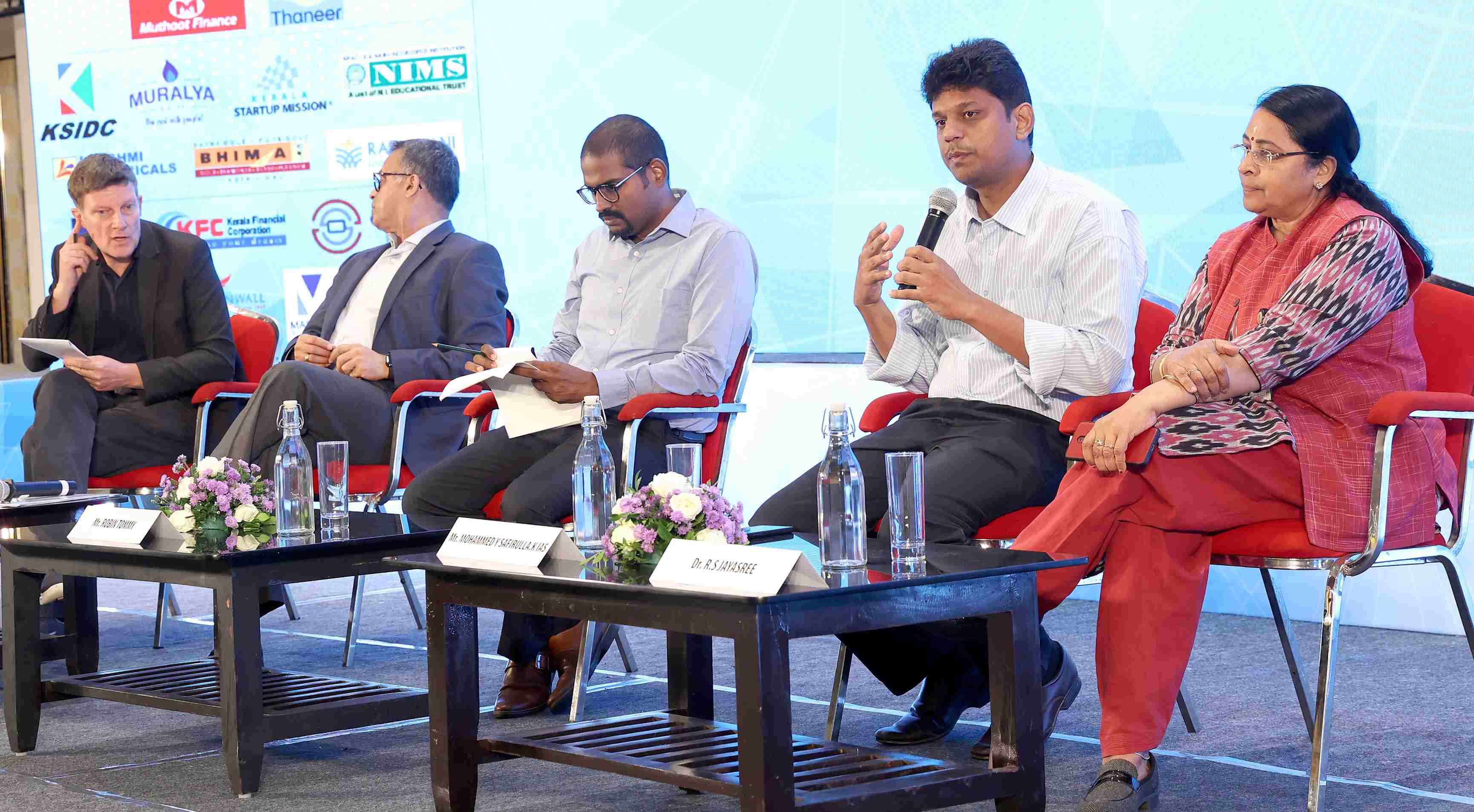Technology inclusivity should reach all sectors: experts at TRIMA
Trivandrum / May 19, 2023
Thiruvananthapuram, May 19: In a country like India where technology adaptation has happened on a large scale, it is imperative to ensure that technology inclusivity percolates all sectors, experts said at the Annual Management Convention of Trivandrum Management Association (TMA), TRIMA 2023, here today.
“Inclusivity reach in all sectors is important. Leveraging of new technology plays a critical role in achieving this goal of bringing more people into an ecosystem that assures opportunities cutting across divides”, said Mr Mohammed Y Safirulla K, Project Director, e-Health, Government of Kerala.
He was speaking at a panel discussion on the concluding day of TRIMA 2023, themed ‘Trivandrum 5.0—Prosperity Beyond Profit’, which began here on Thursday.
Delivering the keynote address to a session on Technology and Inclusivity, Mr K Nanda Kumar, Founder-President and Chief Executive Officer, SunTec Business Solutions, stressed how India’s technology inclusivity has influenced multiple domains, and cited the instance of UPI (Unified Payments Interface) which has taken into account millions of people at ground level.
He also made a strong case for the need to have conscious organisations/businesses which focuses on optimising value for stakeholders.
“Stakeholders often expect inclusive growth. The need of the hour is to have a conscious organisation which optimises value for stakeholders,” he said.
Going beyond profit generation, a conscious organisation, Mr Nanda Kumar noted, should be purpose-driven and value-based. It should also ensure employment sustainability, transparency and community engagement.
Mr Paul Kronenberg, Founder, Kanthari, said in a constantly changing world, the focus should be on how everybody equally benefits from technology.
Highlighting the potential of technology to create a more inclusive society, he said technology should be utilised to create a level playing field.
Dr R S Jayasree, Scientist, SCTIMST, speaking on the benefits of technological advancements in the health sector, noted that deployment of technology in the sector helped India fight the COVID pandemic in a better way than any other country.
As digital literacy was promoted and accessibility ensured, many could benefit from the support offered by the health sector, including e-consultancy during the pandemic, she said.
Mr Robin Tommy, Social Innovation and Startup Mentor, Tata Consultancy Services (TCS), moderated the session.
Mr N Mahesh, Principal Architect, Iyer & Mahesh, while delivering the keynote address at a session on ‘Sustainable solutions for one world’, noted that every city should have a minimum of 14 per cent of land under biological cover to ensure a sustainable environment.
Emphasising the need to develop sustainable solutions, he said protecting and restoring nature by ensuring clean air, clean oceans, and a waste-free world pose a great challenge towards achieving the goal of a sustainable world.
Dr Sudeshna Chatterjee, Program Director, WRI India Ross Center for Cities, stressed the importance of building low-carbon, equitable and prosperous cities for enjoying prosperity beyond profit.
Globally, cities contribute about 80 per cent of the total GDP. There is always a correlation between economic growth and urbanisation. But that correlation is drastically affected when there is limited industrialisation, poor infrastructure, and services, she said.
Mr Prodyut Maji, Head of Technology and Project: Green Hydrogen, Green Chemicals, and Petrochemicals, Adani Enterprises Ltd, focused on hydrogen economy, EV implementation, and renewable energy harvesting as key areas for sustainable growth.
The decarbonisation of the grid, mobility, and industry will help the country to achieve a low carbon and sustainable future which will lead to net zero by 2070, he said.
On the role of private investors in creating sustainable solutions Mr Saurabh Suneja, Principal, National Investment and Infrastructure Fund, noted it is not the financial constraints that matter; rather it depends on how best a project is conceptualised, developed and implemented.
The session was moderated by Mr Bobby E Kurien, Director, Re Sustainability Limited.
Over 400 delegates, including industry leaders, decision makers, professionals, members of the business fraternity and policy makers attended theflagship annual convention of TMA.
TMA is a premier management association in the country affiliated to Delhi-based All India Management Association (AIMA).
Photo Gallery

